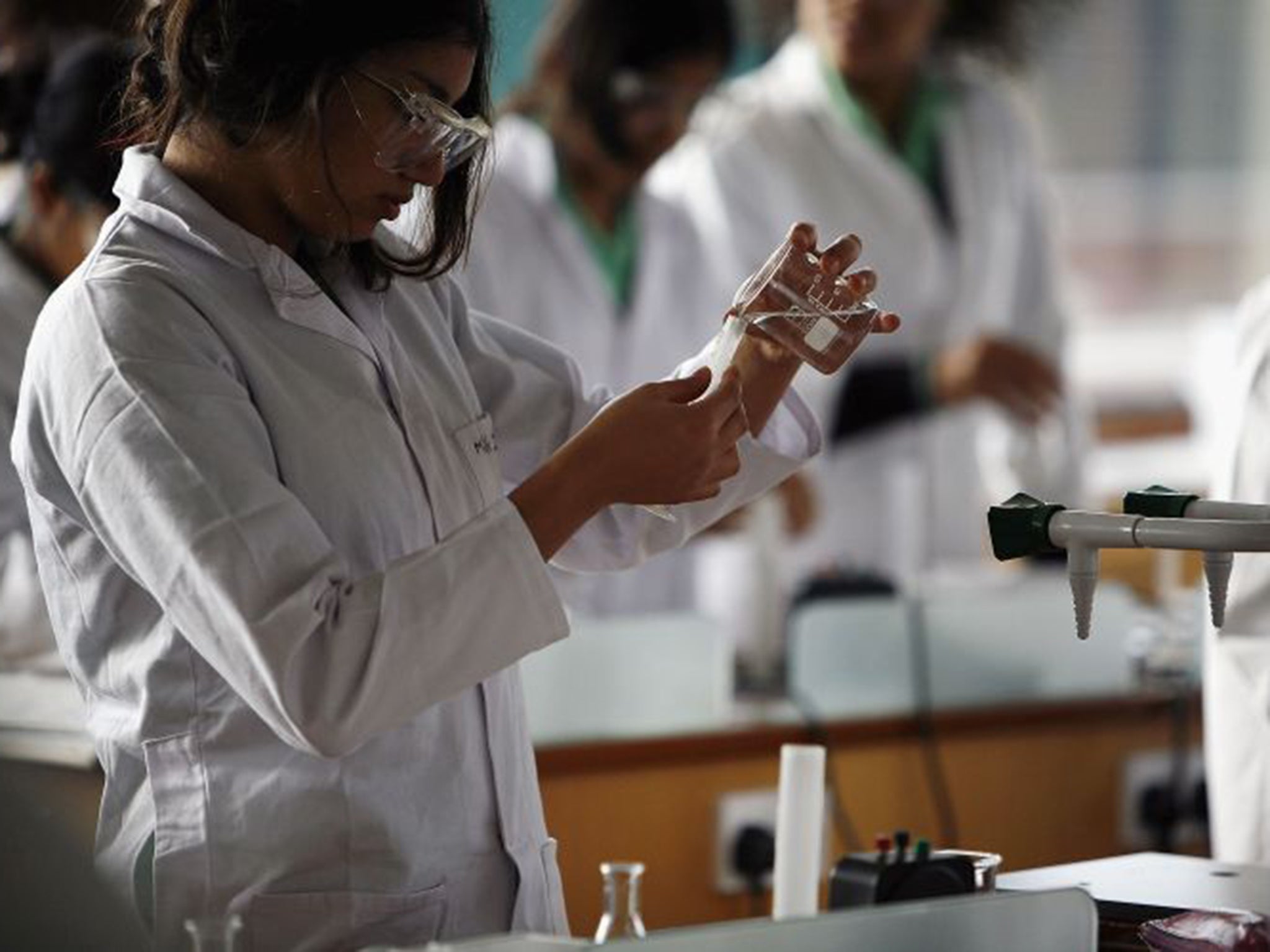My borough lost a major science centre thanks to Brexit. Without proper funding, the UK risks missing out on more
In the UK’s new world of Covid-19, leaving the EU and inequality, can investment in life sciences provide hope for our economic and social future?


Your support helps us to tell the story
From reproductive rights to climate change to Big Tech, The Independent is on the ground when the story is developing. Whether it's investigating the financials of Elon Musk's pro-Trump PAC or producing our latest documentary, 'The A Word', which shines a light on the American women fighting for reproductive rights, we know how important it is to parse out the facts from the messaging.
At such a critical moment in US history, we need reporters on the ground. Your donation allows us to keep sending journalists to speak to both sides of the story.
The Independent is trusted by Americans across the entire political spectrum. And unlike many other quality news outlets, we choose not to lock Americans out of our reporting and analysis with paywalls. We believe quality journalism should be available to everyone, paid for by those who can afford it.
Your support makes all the difference.While the government rejects renewed Brexit talks with the EU and Michael Gove has pointed out in the House of Commons that such meetings would be “pointless” without fundamental changes from Brussels, the UK faces a new era of science rebuilding our economy.
The number of British businesses collaborating internationally under the EU’s flagship research grant scheme, Horizon 2020, has reduced by almost half since the 2016 referendum, which was attributed to uncertainty surrounding Brexit and reluctance for companies in the UK and overseas to work together.
However, France, Germany and Italy expanded their collaborations over the same period, with France growing from 1,400 collaborations to 15,400.
In the aftermath of 2016, my borough of Tower Hamlets saw the departure of the European Medicine Agency, along with almost 900 jobs and 40,000 business visits to its location every year.
In January 2017, in its industrial strategy green paper, the previous government listed the life sciences’ sector as one of the five priority UK industries. However, with the possibility of the UK ending up with a no-deal Brexit, or a limited trade deal, huge uncertainty could still face life sciences. Regulatory barriers could prove costly for pharmaceuticals, depending on the trade deal.
As a result, the UK’s pharmaceutical industry called on the prime minister to agree a “side-deal” with the EU to prevent medicine shortages if the UK leaves without a deal. Boris Johnson promised £300m research and growth investment to draw in top scientists, investors, and industrialists in order to turn the UK into a “science superpower”.
In the UK’s new world of Covid-19, Brexit and inequality, can the investment into life sciences provide hope for Britain’s economic, social, and green sustainability? Can the EMA be replaced by founding the UK’s own life science bureau, connecting people and communities through the power of science in a new world? Could it be founded in the very borough that the EMA departed from?
Currently, life sciences supports almost a quarter of a million jobs and generates £70bn in economic value. An example of the revolutionary work being carried out by the sector is the 100,000 Genomes Project, which has transformed the way in which genetics data is held and used. The UK is currently the only nation in the world to have a large scale, whole genome dataset, which will result in new genomic discovery, advancements in precision medicine, and in healthcare globally.
Barts Health NHS Trust has one of the richest datasets in Europe because of the diversity of Tower Hamlets, which “enriches and enhances their ability to discover solutions that can work in London and the world.” Approximately 32,000 patients from the local community are actively involved in clinical research programmes, and Barts Life Sciences is home to some of the largest clinical trials in the UK.
Back in 2010, The Royal Society published a report entitled The Scientific Century: Securing Our Future Prosperity, which explored the pivotal role that science and innovation plays in the economic growth of industrialised nations. Nevertheless, even 10 years ago, the report stated that the UK’s position at the forefront of global science was under threat as other countries were increasing their research budgets.
In a report by The Economist Intelligence Unit, Professor Sir John Bell, Regius Professor of Medicine at Oxford University, said that the UK’s future lies in capitalising on its reputation for innovation and research, which has fuelled the growth of its universities and earned several Nobel Prizes. Although UK exports have fallen, longer-term prospects for all types of healthcare innovation are strong.
And as Liberal Democrat peer Lord Jonny Oates sums up: "Our departure from the EU transition period whether with or without a deal, means we have already lost the European Medicines Agency and will also lose access to EU research funding. It is critical for our economy that we keep ourselves at the forefront of science research and that means the government must commit itself to a long-term programme investment."
The latest child poverty stats again show that Tower Hamlets is the worst in the UK, so if the government wants to level up then they need only to start a few miles east of Westminster.
The UK is in a strong position to be able to influence and benefit from future, ground-breaking technologies. Tower Hamlets would be the perfect place to replace the EMA, as it sits between two financial districts and brings together a breadth of skills, experience and talent from around the world.
With right investment our borough could be decisive in bridging the gap of health, social and economic inequalities the pandemic laid bare.
Rabina Khan is a Liberal Democrat councillor for Shadwell in Tower Hamlets Council.


Join our commenting forum
Join thought-provoking conversations, follow other Independent readers and see their replies
Comments